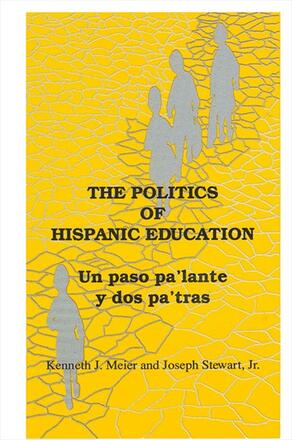
The Politics of Hispanic Education
Un paso pa'lante y dos pa'tras
Alternative formats available from:
Description
This is the first systematic study of the politics of "second generation discrimination" against Hispanic students. Despite the fact that Hispanics are the second largest and fastest growing minority in the United States, little attention has been paid to the efforts of Hispanics to achieve equal educational opportunity. Quantitative, historical, and legal analysis are used to examine the access of Hispanic students to equal educational opportunities in school districts throughout the U. S.
Kenneth J. Meier is Professor of Political Science at the University of Wisconsin-Milwaukee. Joseph Stewart Jr. is Associate Professor of Government and Politics and Political Economy, University of Texas at Dallas.
Reviews
"Very little significant research has been done on Hispanic representation and politics, especially in comparison with the huge corpus of literature on blacks. The attention to Hispanics makes this a significant book. The work is of high quality, intelligently drawing together literature from education, sociology, and political science to set the stage for the authors' analyses. Both the comparisons with the literature on black education and representation and the authors' intra-Hispanic comparisons make it clear that minorities differ significantly from one another in their treatment by education authorities and in their ability to convert group resources into improved educational opportunities. The longitudinal nature of the study is another plus. " — Susan Welch, University of Nebraska-Lincoln
"As one who teaches and does research in the area(s) of Hispanic politics and policy, I am quite aware of the paucity of research, much less good research, in this area. Therefore, this book is a most welcome addition. It is theoretically sensitive, methodologically rigorous and generally will, I think, be an important work. " — Rodney Hero, University of Colorado, Boulder